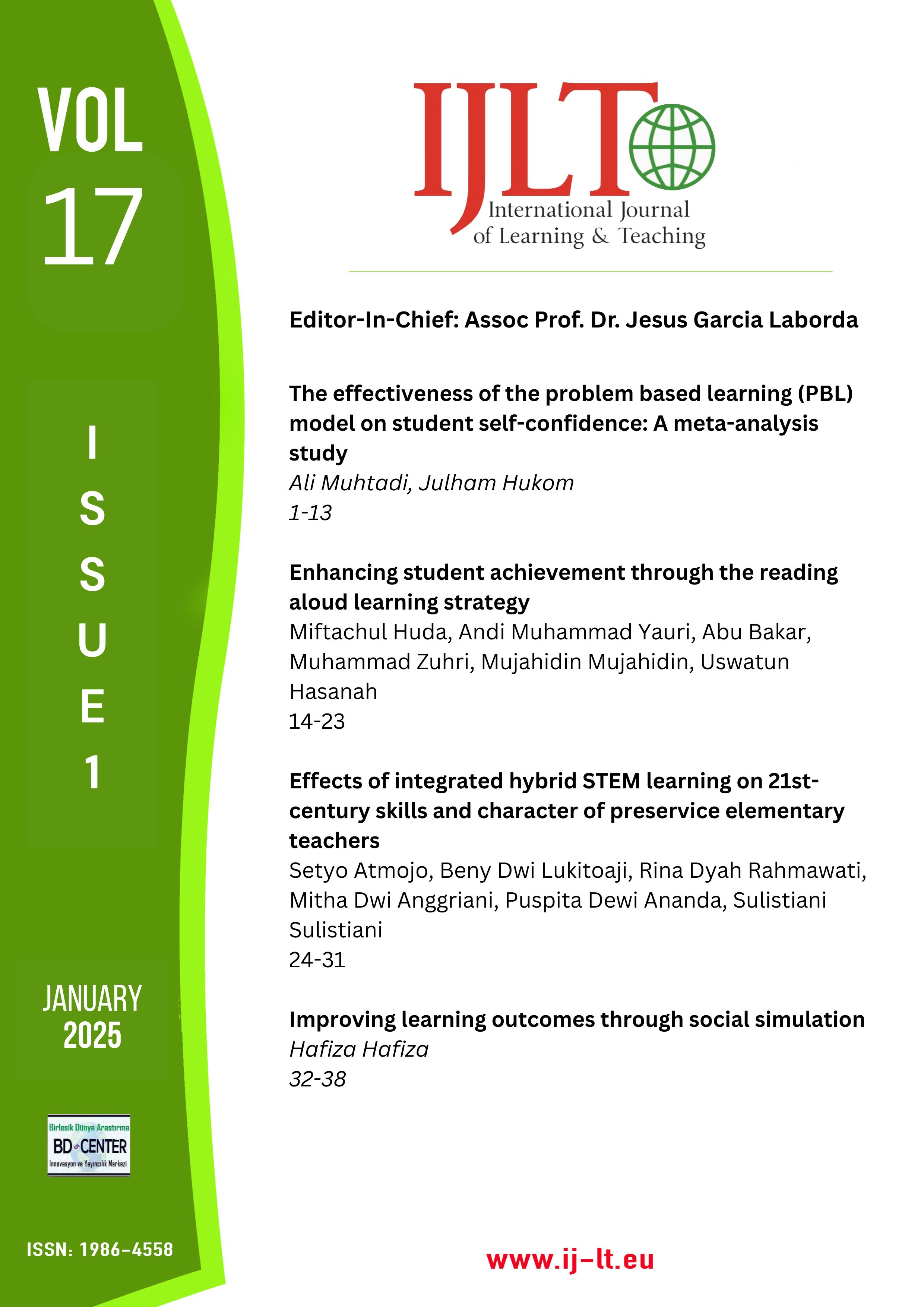Effects of integrated hybrid STEM learning on 21st-century skills and character of preservice elementary teachers
Main Article Content
Abstract
This study investigates the impact of hybrid learning integrated with Science, Technology, Engineering, and Mathematics (STEM) on the development of 21st-century skills and character values among prospective elementary school teachers. Employing a quantitative approach, the research utilized a quasi-experimental design with a posttest control group. The sample consisted of four classes selected through purposive and simple random sampling techniques. Data were collected using a structured questionnaire, and the analysis was conducted using multivariate analysis of variance (MANOVA). The results indicated statistically significant differences between the experimental and control groups in both 21st-century skills and character values. The findings support the effectiveness of STEM-integrated hybrid learning in enhancing critical competencies required for future educators. This model promotes not only cognitive skill development but also the cultivation of essential character traits, aligning with educational goals for preparing well-rounded teacher candidates. The study emphasizes the importance of integrating interdisciplinary approaches and digital learning environments to foster both academic and personal growth in teacher education programs.
Keywords: Character education; hybrid learning; STEM integration; teacher education; twenty-first century skills
Downloads
Article Details

This work is licensed under a Creative Commons Attribution-NonCommercial-NoDerivatives 4.0 International License.
Authors who publish with this journal agree to the following terms:
- Authors retain copyright and grant the journal right of first publication with the work simultaneously licensed under a Creative Commons Attribution License that allows others to share the work with an acknowledgement of the work's authorship and initial publication in this journal.
- Authors are able to enter into separate, additional contractual arrangements for the non-exclusive distribution of the journal's published version of the work (e.g., post it to an institutional repository or publish it in a book), with an acknowledgement of its initial publication in this journal.
- Authors are permitted and encouraged to post their work online (e.g., in institutional repositories or on their website) prior to and during the submission process, as it can lead to productive exchanges, as well as earlier and greater citation of published work (SeeThe Effect of Open Access).
